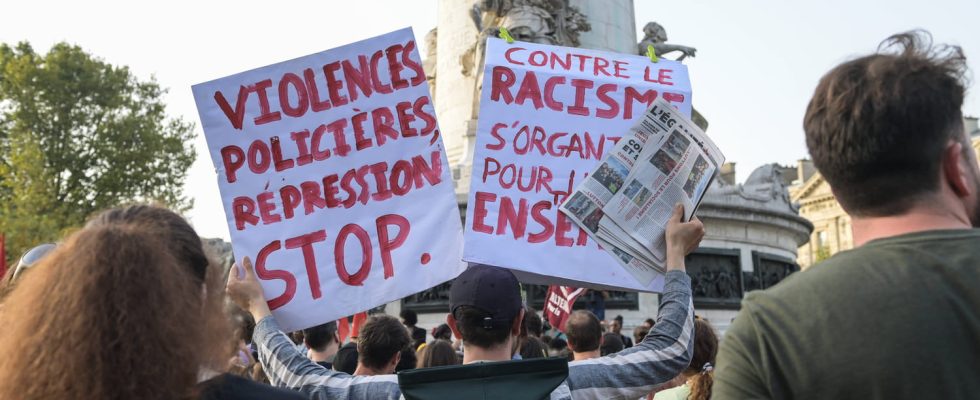This Saturday, September 23, around a hundred organizations, including political parties, unions and associations, will gather for marches “against police violence and systemic racism”.
Around a hundred organizations, unions and political parties, including La France insoumise, are calling for demonstrations on Saturday September 23 against “police violence” and “systemic racism”. This unprecedented mobilization, which brings together collectives from working-class neighborhoods, victims of police violence, NGOs, left-wing parties and unions, wants to denounce “a regressive policy which favors the extreme right”. The organizers of the demonstration add in a joint press release that this policy which they consider violent “increasingly tramples on our public freedoms, our social model, our future in the face of ecological collapse”.
The call for demonstrations is widely relayed by significant entities: the CGT, FSU and Solidaires unions, left-wing parties such as LFI and EELV and the NGOs Attac and Friends of the Earth. But it is far from unanimous. The inter-union did not join the event and both the PS and the PCF refused to join the demonstration. According to them, it is impossible for them to join this movement which affirms that systemic racism exists within the police. If the left does not come together for mobilization, the government is not happy to see that demonstrations are looming.
Participation reassessed upwards
The scale of the demonstrations announced this Saturday to fight against police violence was reassessed upwards on the eve of the mobilization. Of around sixty demonstrations expected, territorial intelligence estimates that 116 gatherings could take place throughout France and bring together more than 30,000 people, compared to 26,000 at the start of the week, according to a report consulted by RTL. In Paris, the demonstration could bring together 4,000 to 6,000 participants, including 200 to 400 “elements at risk”, specifies BFMTV.
Some demonstrations worry the authorities more than others. Around fifteen cities risk seeing demonstrations disrupted by violence, including Rennes, Lilles, Grenoble, Bordeaux and Toulouse. “Public disturbances are also expected in Nice, where an anti-drug rally near the march is organized by the ultra-right. A risk of confrontation could thus take place with the ultra-left,” specifies the note .
Can the prefecture ban this call to demonstrate?
The Minister of the Interior, Gérald Darmanin, raised the possibility of a ban on demonstrations against police violence. A decision that he would justify by the context of a very busy week for the police in France with the visits of the British King Charles III and Pope Francis, the holding of the Rugby World Cup and several matches of football.
However, he did not issue a general ban and handed over the responsibility for banning mobilizations or not to the prefects. “Prefects, here or there if there were exceptional events (…), particular difficulties, could issue prohibitory orders but it is up to the prefects to take their responsibilities, each in their department. “There are no general instructions,” explained Gérald Darmanin.
This demonstration is an important event because it represents a broad coalition of left and far-left forces, as well as collectives from working-class neighborhoods and victims of police violence. The possibility of a ban on the demonstration by the authorities is an additional source of tension. It could lead to protest demonstrations and clashes with the police.
